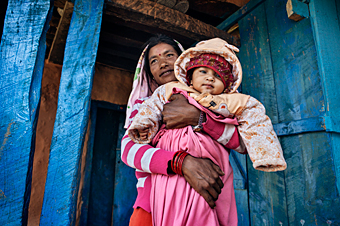
Gender Equality and World Peace
Recently, DFW co-founders Marsha Wallace and Barb Collins and I had the opportunity to visit the U.S. Institute of Peace (USIP) in Washington, DC with Ambassador (Ret.) Steve Steiner. Ambassador Steiner is a fabulous supporter of DFW, along with his wife and DC-1 Chapter Leader Merle Steiner.
The most important message I want to convey to you, our members, from our experience at USIP is that we are contributing to world peace. It’s a big statement, I know, but it is true. Through the programs we fund, we are empowering women to be safe, healthy, educated, economically stable, and to know they have choices in their lives. Without these human rights, it is impossible for women to be equal participants in the protection of their families, in local peace initiatives, and in recovery after conflict.
According to Sex and World Peace (please put on your reading list!), nations that promote gender equality are more likely to use diplomacy before force in conflict and are less likely to get involved in violent crises. Furthermore, when women are not treated equally, war is more culturally acceptable. By contributing to programs that free women and girls from personal health crises, personal economic crises, and educational barriers, we are creating opportunities for women to advocate for their rightful place in society and seat at the peace table.
UN Security Council Resolution 1325 was adopted in 2000 to address “not only the inordinate impact of war on women, but also the pivotal role women should and do play in conflict management, conflict resolution, and sustainable peace”. Peace is inextricably linked to equality between men and women. UNSC 1325 is also a tool for the prevention of armed conflict and to facilitate inclusion of gender in the ongoing peace and security efforts.
Melanne Verveer, former U.S. Ambassador-at-Large for Global Women’s Issues at the U.S. Department of State emphasizes, “Too often, women’s roles are marginalized because they are not seen in terms of their leadership. We must see women as leaders, not victims. We must also view their participation not as a favor to women, but as essential to peace and security.”
DFW was founded on the research that the best way to end extreme poverty in developing countries is to create equality for women and girls. Research also shows that creating equality for women and girls is the best way to create lasting peace solutions. Organizations like Dining for Women are funding programs that help women overcome the barriers to gaining participation in the peace process. I believe in the old activist adage that if I am not part of the solution, I am a part of the problem. One of the many things I love about Dining for Women is that we are addressing the root causes of big problems. Each of you are individually and collectively contributing to ending extreme poverty and to world peace. Way to be a part of the solution!
